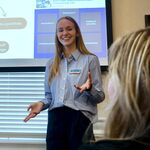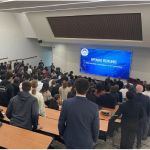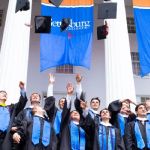
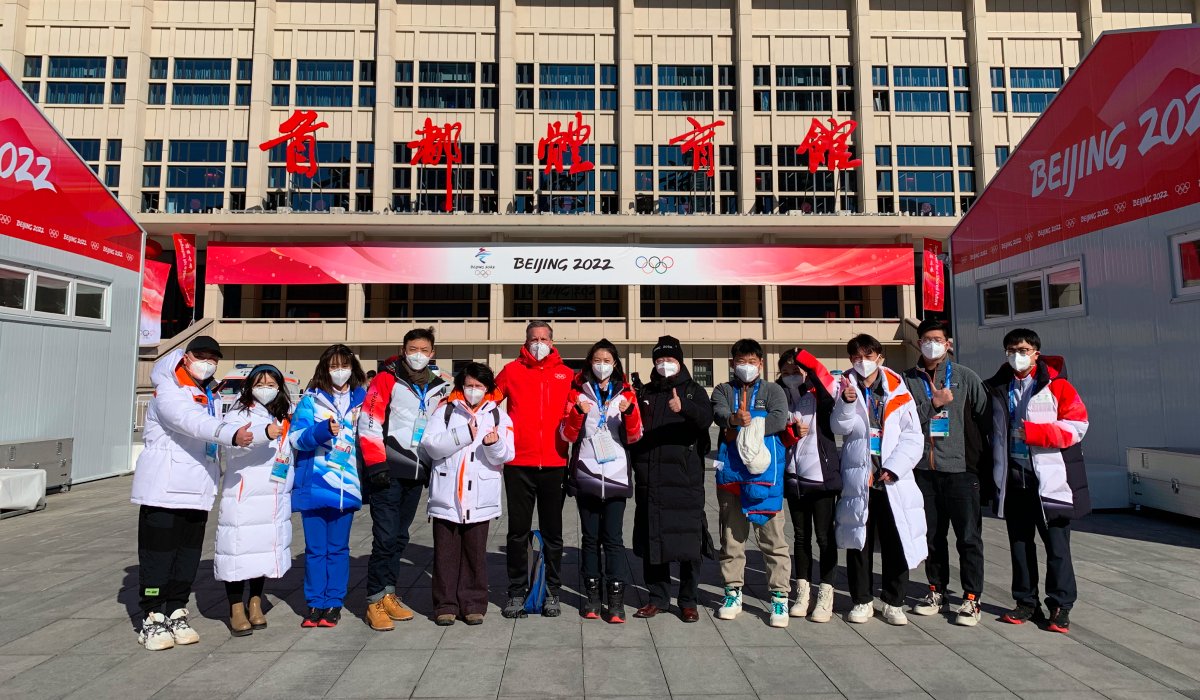
It’s July 1996. Rod Edmiston ’90, a recent Gettysburg graduate, is gearing up for his first—and most memorable—Olympic Games in Atlanta, Georgia. Edmiston had just finished working as a group ticket sales manager for the Richmond Braves, a minor league baseball team. He turned his attention to an opportunity of a lifetime working for the Olympics—and he’s never looked back since.
“The Olympics is a challenging project, and once-in-a-lifetime for many people,” Edmiston said. “You go through this three-to-four-year project with your colleagues, and in the end, you see this amazing delivery of world-class sporting events. Afterward, you go, ‘Wow, we did it. We sold millions of tickets.’”
Fast forward 25 years and Edmiston now lives in Switzerland with his family, working for the International Olympic Committee (IOC) as the senior manager of ticketing planning and delivery. He’s traveled around the world and worked nearly a dozen Olympic Games—including the Summer, Winter, and Paralympic Games. In fact, Edmiston traveled to Beijing this year for the 2022 Winter Olympics and Paralympics. He’s encountered challenges and triumphs throughout his career, but the greatest lesson he learned is to use the world as a classroom.
“I’ve always been curious,” he said. “That’s part of what drives me. It’s been fun to learn the intricacies of different countries. Some of the most fun experiences were driving outside of the big city into a little village and sitting with people, just chatting about the world.”
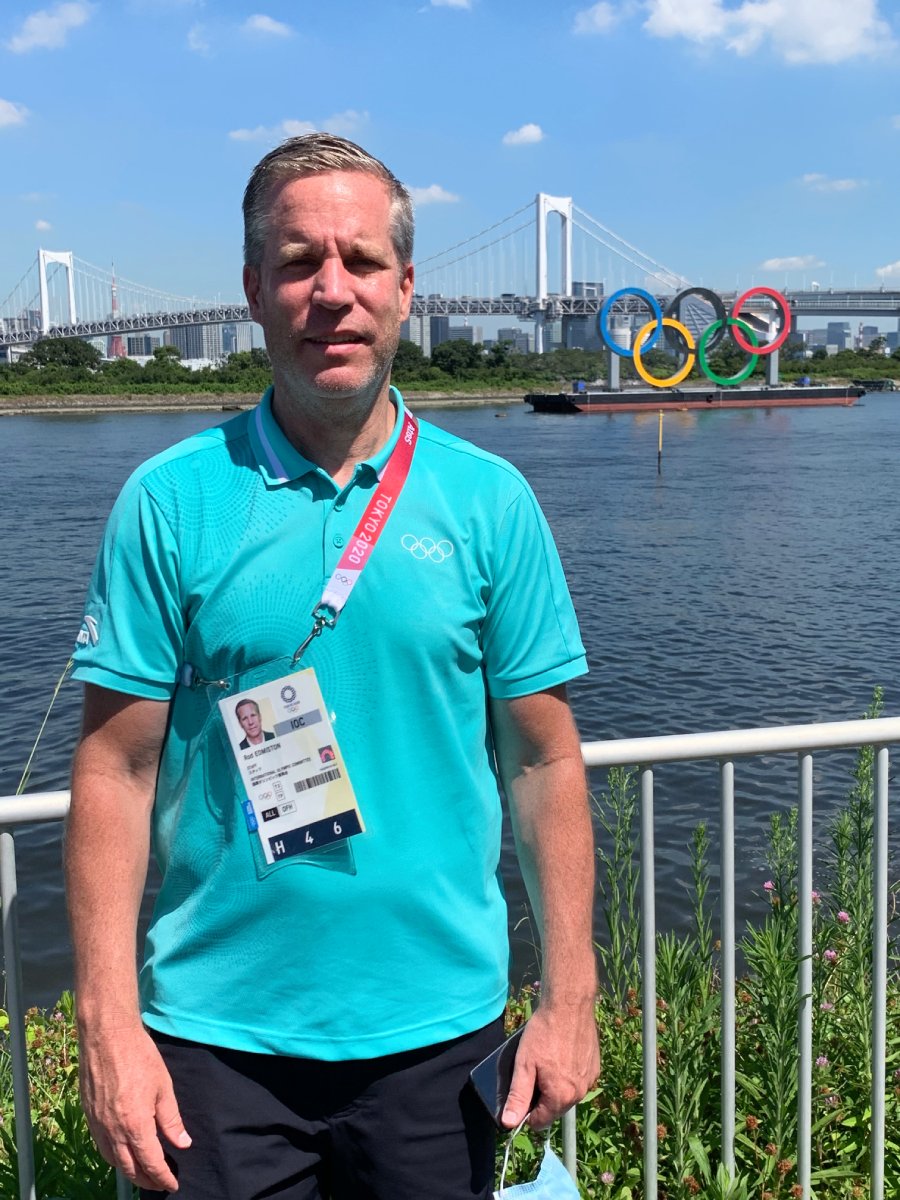
Coming from a small town in Delaware, where his family hardly left a 100-mile radius, Edmiston decided to attend Gettysburg to stay relatively close to home. He played on the soccer team and declared a major in political science and a minor in Spanish. His life changed when he took a semester abroad in Seville, Spain.
“I did a semester abroad in Spain during my time at Gettysburg, and that’s when I fell in love with the world out there,” Edmiston said. “That semester abroad really gave me wings, and I promised I would go back or at least try to find a job in the international realm.”
After Edmiston graduated, he moved around the United States before beginning his international career. Once he started working the Olympics, he relocated with each event, living in the host country for a three-to-four-year stint, which allowed him to fully immerse himself in new places and their cultures.
“You set down roots,” he said. “I’ve been to weddings in Malaysia and Russia and parties in Greece. I’ve seen many national holidays in all the different countries. It’s an amazing experience to be treated as a local and brought into their family. Everybody should ideally spend a semester overseas to learn a different culture. It opens up your mind. You learn that people are fundamentally quite similar deep down inside.”
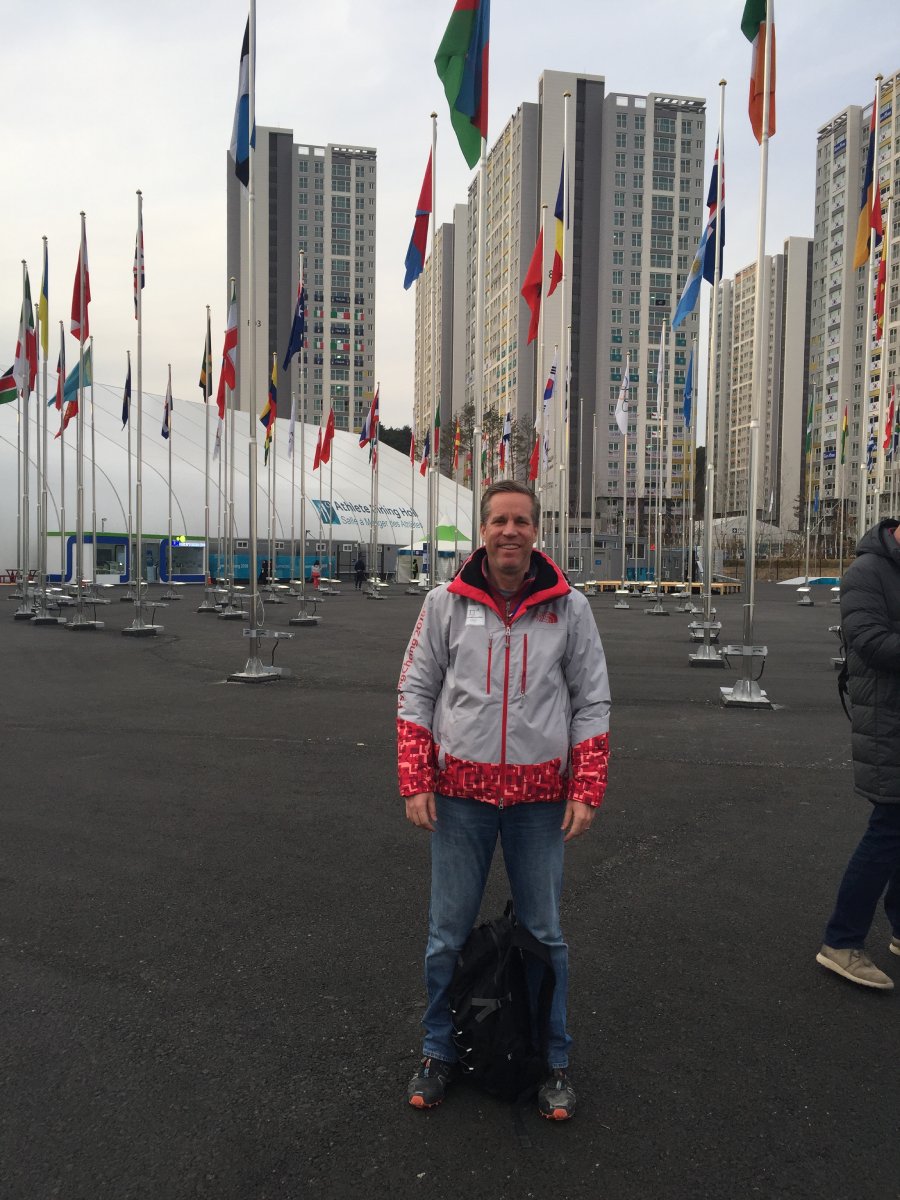
Alongside the fulfillment of being exposed to new countries, languages, people, and ways of life, on a professional level, Edmiston learned that he thrives off the high-octane nature of working in a global arena. Throughout his 25-year career, he’s watched numerous colleagues undergo the transformative experience of working for and attending the Olympics for the first time.
“It's amazing to me to watch that whole evolution of people,” he said. “[The Olympics] is a massive undertaking. I’m just one small part of many other areas, from marketing, communications, venue management, torch relay, brand protection, legal, and so on. Putting the Olympics together is quite complex, but also quite fun and challenging. It's always something different because it’s a new country every time.”
In the ticketing realm, Edmiston splits his time between the technical and the interpersonal. He ensures that millions of spectators secure their tickets for the games, while optimizing their Olympic experience by streamlining the journey, start to finish—from traveling across the world to cheering in the stands. He also enjoys helping direct spectators or athletes to venues at the games.
“Having it automated and digital these days makes life much easier,” Edmiston explained. “You can make the spectator experience better by focusing on how to educate them, inform them, and give them the information and tools they need to be able to get to the venue and back home again.”
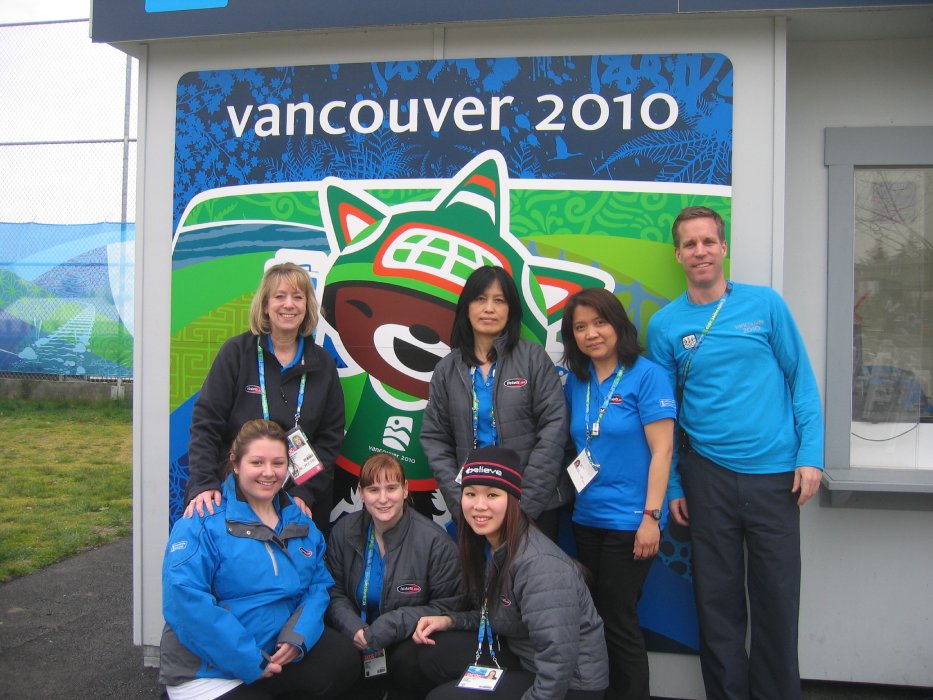
For Edmiston, the payoff of putting on a successful Olympics makes the entire process worth it. He’s been in the room for monumental Olympic triumphs—from Usain Bolt sprinting for gold at the 2016 Rio Olympics to the U.S. women’s ice hockey team winning gold at PyeongChang in 2018.
“That’s why I keep coming back. We forget the challenges, the issues, the problems, and we remember the games,” Edmiston said. “Each games has its own amazing moments where we’ll stop and just look around and go, ‘Oh my gosh, I can't believe I’m here.’ Literally every games has been like that—no matter where I’ve been.”
To this day, Edmiston cherishes his time at Gettysburg. It led him to explore the world outside of campus and prepared him for an international career path, fully equipped with the skills to succeed thanks to his interdisciplinary liberal arts and sciences education.
“One of the great things about Gettysburg is it gives you a very well-rounded education, being a liberal arts school,” he said. “When you graduate from Gettysburg, you’re loaded with a tool belt of being able to do whatever you want to do—if you want to go to graduate school, if you want to go be a doctor, or if you want to go into ticketing, working for the Olympics.”
Explore the possibilities to travel the world through Gettysburg’s study abroad offerings.
By Phoebe Doscher ’22
Photos courtesy of Rod Edmiston ’90
Posted: 03/22/22
